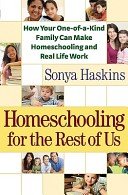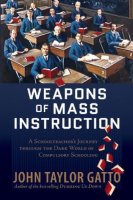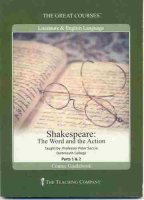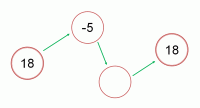 Indoctrinate U (On the Fence Films, 2007)
Indoctrinate U (On the Fence Films, 2007)
Indoctrinate U has been on my "watch list" for a while, but I hadn't been able to make myself take the time. It's not available from Netflix, but I found it on YouTube, in nine parts of about 10 minutes each. Today it came up on my "get this done today" list, so I thought I'd watch one or two of the segments. But they don't end in good places, and anyway I got hooked, so I watched the whole thing.
This documentary on discrimination, intolerance, and anti-diversity in American higher education is obviously not a high-budget film, though I'm sure it's better in the original format. I agree with Janet's comment that "it only pointed out the problems and didn't discuss any causes or better yet, idea for fixing the problems," and fear she may be right that it might be more divisive than helpful. Nonetheless, it's an important film to watch for anyone attending, planning to attend, or sending money to a college or university. I am not advocating staying away from college; but do be aware of the larger picture.
Although the film looks with some nostalgia on university life in the 1960's, there was plenty of intolerance for diversity of thought even then, though it was not, as now, enshrined in the bureaucracy, and the hard sciences (where I was) were mostly free of that, at least as far as the students were concerned. Our professors had a hard enough time teaching us math and physics, and didn't feel that taking time for political discussion would help us understand differential equations any better. I'm told by math professor friends that that has now changed. One, who has taught both in the United States and in Africa, expressed frustration that her American university required her to teach her not only calculus, but also the importance of African mathematics. I'm not sure what "African mathematics" might be that is important for a university math major to learn (I missed it in my classes), but I wouldn't be surprised if in the future the important mathematicians are African—because her African students are eager to learn the content, not the politics, of math.
The investigator for Indoctrinate U has been criticized for his confrontational approach, but while I do think one cannot expect to see a university president without an appointment, as journalists go, he was about as mild and polite as you can get.
Yes, the film is one-sided, and not only because they couldn't get anyone from the university side to talk seriously with them. It presents, however, a side that is not usually heard—indeed, is often censored, mocked, threatened, and attacked—and can be forgiven for being a little strident.
Here is the first segment; from there YouTube will provide links to the remaining eight. Be patient with the first couple, as at least I found the emphasis on affirmative action less interesting than the general topic of free speech on campus, which is more clearly presented in later parts. (There is a small number of profanities—quoting from a threat to a student and from the title of a play—that are bleeped out if you get the "clean" version, but the download versions are unaltered.)
I wish they had made more of a distinction between public and private colleges. To me, there's a huge difference between what a private school chooses to allow or forbid, and what a taxpayer-funded school does. But in either case, if the school is presenting itself as a bastion of diversity, tolerance, and academic freedom, evidence to the contrary needs to be heard. Caveat emptor.
Is there a solution? Confronting the universities with their own stated diversity policies is a start: Janet had some success at her school that way. In the long run, I think the biggest difference will be made by India and the Internet. American universities have long enjoyed near-monopolistic dominance in their field. However, as it did for their manufacturing and information technology counterparts, that privilege is coming to an end. When people have choices, change happens.It's not a topic I'd intended to blog about, even though I'd read the AP article, Top home-school texts dismiss Darwin, evolution. But I wrote so much in a comment to a friend's Facebook post (thanks, Liz!), I figure it's a shame not to make a second use of the effort.
Our own homeschooling experience left me not particularly impressed with the efforts of specifically Christian publishers, beginning with the discovery that the A Beka kindergarten book I'd bought taught that winter is a time of snow, with no mention of the large part of the world where that isn't true. I suspect most books at the kindergarten level are about as bad, but A Beka is based in Pensacola, Florida, and should have known better. (More)
 Homeschooling for the Rest of Us: How Your One-of-a-Kind Family Can Make Homeschooling and Real Life Work, by Sonya Haskins
(Bethany House, Minneapolis, 2010)
Homeschooling for the Rest of Us: How Your One-of-a-Kind Family Can Make Homeschooling and Real Life Work, by Sonya Haskins
(Bethany House, Minneapolis, 2010)
Sonya Haskins is a calm and reasonable voice speaking to the homeschooler—and potential homeschooler—who is overwhelmed and intimidated by the image of the "perfect" homeschooling experience: "Matching outfits, polite toddlers, award-winning students, fifteen-passenger vans, and family Web sites." (Raymond and Dorothy Moore did the same thing in the 1980s with Homeschool Burnout, which was updated and revised in the 1990s as The Successful Homeschool Family Handbook.) There's a lot of hype, confusion, and contradictory information out there, and Haskins' practical, back-to-basics approach and helpful suggestions will reassure timid beginners that they can, indeed, safely navigate the homeschooling waters. (More)
This article about the mathematics department at the University of Rochester credits much of their recent success to an online homework system developed by two U of R professors.
Any system that results in 80 percent of undergraduates taking calculus, without any requirement to do so, bears looking into. (More)
 Weapons of Mass Instruction: A Schoolteacher's Journey through the Dark World of Compulsory Schooling, by John Taylor Gatto
(New Society Publishers, Gabriola Island, BC, Canada, 2009)
Weapons of Mass Instruction: A Schoolteacher's Journey through the Dark World of Compulsory Schooling, by John Taylor Gatto
(New Society Publishers, Gabriola Island, BC, Canada, 2009)
A pastor I know was fond of quoting Martin Luther, who, when asked why he preached on justification by faith every week, responded, "Because you forget it every week." John Taylor Gatto has no love for Martin Luther, but I can imagine him giving a similar response when asked why his books, articles, and lectures include so much that he has said before. He has a critically important message to deliver, and is clearly compelled to repeat it as many times and in as many ways as he can.
In his desperation to make people understand what he has learned, from his research and 30 years on the front lines of teaching, Gatto has become more pointed, strident and radical as time goes on. It's an understandable reaction—I remember noting the same effect in John Holt's writings, and I fall prey to it all too often myself—but for this reason I hesitate a little to recommend Weapons of Mass Instruction to anyone who is not already convinced of the dangers inherent in our pubic school system. And yet...I do recommend it, highly. Why? Let me digress. (More)

Shakespeare: The Word and the Action, by Peter Saccio; a Teaching Company lecture
For accessible, serious, high-quality, adult-level educational materials (DVD, tape, mp3 downloads) it's hard to beat The Teaching Company. Tonight we finished the last lecture of Shakespeare: The Word and the Action, a course which easily ranks as one of my favorites.
Here are the titles of the 16 lectures:
- Shakespeare's Wavelengths
- The Multiple Actions of A Midsummer Night's Dream
- The Form of Shakespeare's Sonnets
- Love in Shakespeare's Sonnets
- Love and Artifice in Love's Labor's Lost and Much Ado About Nothing
- As You Like It
- The Battles of Henry VI
- Richard III and the Renaissance
- History and Family in Henry IV
- Action in Hamlet
- Coriolanus—The Hero Alone
- Change in Antony and Cleopatra
- The Plot of Cymbeline
- Nature and Art in The Winter's Tale
- Three Kinds of Tempest
- History and Henry VIII
I find it easy to be intimidated by Shakespeare; despite the efforts of my high school teachers, the glories of the Bard didn't begin to open to me until a few months after my 50th birthday, when I saw Kenneth Branagh's version of Henry V.
Saccio's lectures aren't this inspiring, I will admit. But most of the plays he teaches I have never seen nor read, and every single lecture left both of us eager to experience the play, which is no small accomplishment. I highly recommend this course.
Blame me, my parents, or my schools as you see fit, but after half a century as an American citizen, 13 years of public education, and a college degree, I couldn't name all of the presidents of the United States, much less in order. The mystery is why no one ever tried to teach me, given how easily I learned them when I put my mind to it, and how handy it has been (and would have been in history class!) to have even a rough idea of who fits in where.
Actually, I did not even have to put my mind to the problem, only my ears. I bought a copy of Sue Dickson's "Song of the U.S. Presidents," and after a few hearings it stuck. It's not a great song, but as with many not-so-great songs, that seems to make it stick all the better. (The link takes you to an updated version that I haven't tried yet (mine ends with Clinton), but the sample suggests it is basically the same.) Of all the U.S. President songs, that one is my favorite, because it is short, simple, and easy to rattle off mentally when needed—such as when I'm playing the "put the pictures of the presidents in chronological order" game with my nephews. However, it teaches only the order (no numbers) and gives last names but not first, so you have to know which Adams is which, and which Harrison, and that both Clevelands are the same person. (More)
Where were you 20 years ago today?
My own journal entry is remarkably filled with the mundane details of life with two young children. There is one exclamatory sentence, "Would that every day could be like this!" but it was referring to Heather's having awakened with her alarm clock, showered, dressed, made her bed, cleaned her room and finished all her chores before school. Not as momentous as events on the other side of the world, but a personal triumph. (More)Studies showing that teachers will form expectations of a student's character and ability based on nothing more than his or her name are unfortunately nothing new. Students with "traditional," common names are more likely to receive higher ratings on both academic performance and behavior than those with names perceived as odd. What makes this article worth commenting on is not the results of the study, but the names themselves.
(More)The study reveals that . . . traditional names such as Charlotte, Sophie, Marie, Hannah, Alexander, Maximilian, Simon, Lukas and Jakob are consistently linked to strong performance and good behaviour. Non-traditional names such as Chantal, Mandy, Angelina, Kevin, Justin and Maurice, on the other hand, are associated with weak performance and bad behaviour.
School at the Daley household could hardly have been called normal, since Grandma was there as a distraction and Mommy was sick for the first part of my visit. Nonetheless, I enjoyed my glimpse into the official, sit-at-the-table side of their 24/7 educational process.
Jonathan is not at the moment as excited about math as he is about reading—unlike his Aunt Janet at that age, for whom reading was all right but math was a bowl full of candy. He's doing well, though, with basic addition and subtraction (and even some simple multiplication and division), and enjoys the "math paths" that Grandma sends him in the mail, problems like this one:

Our own homeschooling experiences were far shorter than I would have liked, so it has been fun watching other family members in their adventures. (It has also been nothing short of astonishing to see what resources are now available, rather like the difference between a gas station convenience store and a Super-Wegmans grocery store.)
It is especially fun to watch the grandkids' schooling, since our own children were in public school at this stage. On the one hand, school time is very short, even for kindergarten, when measured by organized, sit-at-the-table time, and Heather's still working on the best way to balance everyone's needs. On the other hand, education, if not school, is clearly going on 24/7, and one cannot argue with the results.
Jonathan can read. It is still laborious enough that he tires easily, but he has reached the stage where what he needs most is simply to read, which he is happy to do, whether to himself or to others. And not only books, but signs, maps, computer screens, anything and everything.
I think more reading goes on here than anything else. Noah asks to be read to at any spare moment (or not so spare), usually the same books over and over and over again, until he knows the story well enough to "read" it himself. It's a hoot to hear him tell The Three Billy Goats Gruff: You wouldn't understand much if you didn't already know the story, but he has all the nuances and tones of voice down pat, from "It only I, the little billy goat," to "I coming to GOBBLE YOU UP!"
This post clearly isn't going to cover all I had planned, so I'll cut it short and post it anyway. Being part of the adventure doesn't leave much time to write about it.- A chance to excel? A school district in Colorado is eliminating both grades and grade levels in a radical attempt to help its students learn. In theory, students assume more responsibility for their own learning, and take as long or as short a time as they need to advance from one level of the material to another. This has enormous potential for good, though I’ll withhold judgement until I see whether or not it truly encourages students to learn more, faster, or if administrators will be content with results like a first grade classroom that took a year “to create—and refine—a classroom code of conduct…which includes items such as "don't hit people" and "we will not play with hair."
-
Food for thought. From Percival Blakeney Academy, a thoughtful look at homeschooling
through an analogy with home cooking.
[Wh]at about a family eating a meal planned by the mom but cooked by a housekeeper or cook? Or a takeout meal served at home on one's own dishes? Or a frozen lasagna baked in your own oven with bakery bread and your own salad? Or a make ahead meal prepped in a commercial dinners-to-go kitchen by the mom from their menu card and then cooked up weeks later at home? Which of these is home cooking and which isn't? Is there a difference between home cooking and eating at home (and does the difference matter)?
- The Great Homeschooling Divide (or one of them). Here’s a mom who effectively voices the position of those who homeschool because they believe public/private schools aren’t good/affordable enough. My gut reaction is, these people don’t GET homeschooling AT ALL. But that’s unfair. Finding no suitable alternative is a legitimate reason for homeschooling, as long as it’s understood that if every school were suddenly, magically perfect for everyone, many of us would still insist on home learning. To borrow from the above-mentioned analogy, I don’t care how great the restaurant is, it will never replace the family dinner table.
- In case you thought your state's homeschooling requirements were onerous. Educating Germany, a website in English—though some links are to articles in German—in support of educational freedom in Germany, in which homeschooling your children is likely to result in having them forcibly removed from your home.
-
Legislation, sausage...and textbooks. Did you ever thumb through your child’s textbook and lament,
“Who writes these things, anyway?” Turns
out that’s a dangerous as wondering what went into the hot dog you just swallowed. More so, maybe. A former editor at a major textbook publisher
tells what you don’t want to
know.
I got a hint of things to come when I overheard my boss lamenting, "The books are done and we still don't have an author! I must sign someone today!"
Today marks our Constitution's 222nd birthday, in honor of which I present another depressing civics quiz. The questions are drawn from the test prospective U.S. citizens must pass, and if these standards applied to all, apparently 97% of Oklahoma's public high school students would be in danger of losing their citizenship. I'm sure no one is under any illusions that the problem is limited to Oklahoma. Here are the questions; for the answers, and what percentage of the students surveyed answered each question correctly, see the original article.
- What is the supreme law of the land?
- What do we call the first ten amendments to the Constitution?
- What are the two parts of the U.S. Congress?
- How many justices are there on the Supreme Court?
- Who wrote the Declaration of Independence?
- What ocean is on the east coast of the United States?
- What are the two major political parties in the United States?
- We elect a U.S. senator for how many years?
- Who was the first President of the United States?
- Who is in charge of the executive branch?
I don't expect most of my Loyal Readers to wade through the entirety of Paul Gottfried's Voices Against Progress: What I Learned from Genovese, Lasch, and Bradford at the Front Porch Republic, but I include the link for those of us who were students at the University of Rochester during those times. I find it fascinating to glimpse the political maneuverings that were going on over the heads of mere students. I knew neither Eugene Genovese nor Christopher Lasch; I stayed as much as possible in the science and engineering part of the school, and never set foot in that "hotbed of the New Left, the University of Rochester history department." But everyone had heard of Genovese, whom we usually referred to as Our Resident Commie, and his wife, Elizabeth Fox-Genovese, the Resident Feminist.
Of even more interest is how the thoughts and ideals of these people changed over time. I don't regret having avoided the U of R history department in the 1970's, but find myself wishing I had known these folks as friends.The future may belong to the Indians, or perhaps the Africans—or anyone who grows up in a multilingual environment. Adding to the evidence of the benefits to the brain of speaking multiple languages is the research of Lera Boroditsky at Stanford University. (Newsweek article by Sharon Begley.)
When the world's tallest vehicular bridge,* the Viaduc de Millau, opened,
German newspapers described how it "floated above the clouds" with "elegance and lightness" and "breathtaking" beauty. In France, papers praised the "immense" "concrete giant." Was it mere coincidence that the Germans saw beauty where the French saw heft and power?


